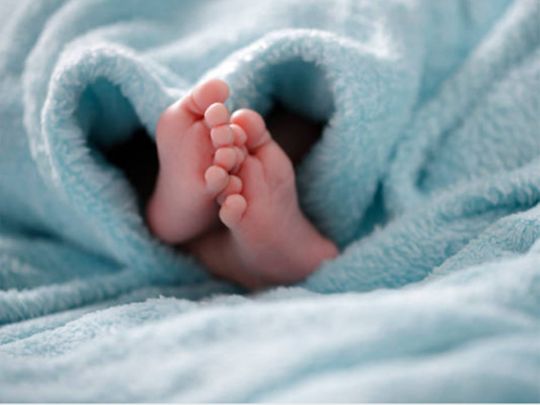
New York: Two weeks after New York City shut down, Poonam Sharma Mathis went into labor.
She had once harbored deep fears about childbirth, but those were soothed when her son, Pierce, was born four years ago without complications. At 42 years old, Poonam was delighted to be pregnant again, this time with a girl. "You'll never be alone now," she wrote in a note to Pierce. She bought herself a pink nightgown to match her future daughter's pink onesie, envisioning their first picture together.
Then came the coronavirus outbreak. Poonam's anxiety began to grow as the death toll rose. Her scheduled cesarean suddenly seemed ominous. It was possible her husband, Kris, 42, would not be allowed by her side. "This will be the worst time to be gutted like a fish," she thought.
Worried about the impending apex, Poonam attempts unsuccessfully to move her delivery date up. An article about a newborn with COVID-19 is particularly rattling.
Poonam decides to channel her fears into recording a podcast about her experience. Her work as an entrepreneur (she had been raising money for her second startup - a coworking space with licensed on-site child care) is on hold anyway. The podcast will be a release for her; a way to start a discussion about the unknown.
"So, I'm officially scared," she announces on the first episode.
The whole story
Poonam begins having contractions. She and Kris arrive at NewYork-Presbyterian/Weill Cornell Medical Center, which is already slammed with critically ill patients. More than 1,200 people have died from COVID-19, and Gov. Andrew Cuomo says the worst is yet to come.
Kris is allowed inside after his temperature is taken at the door. The nurses assure them that everything is going to be fine. Kris is ordered to wear a surgical apron, gloves, bootees and a mask. Once Poonam's contractions are 15 minutes apart, she is wheeled into the triage room where her nose is swabbed for a COVID-19 test.
At 6.33pm, Asha is born. She is 7 pounds, 11 ounces (3.4kg) with wise, brown eyes. After about a half-hour in the recovery room, Kris is asked to leave.
Smile behind a mask
Poonam breastfeeds while wearing a mask, her face turned to the side. Later, she learns that she has tested negative for COVID-19. She kisses her daughter for the first time. That night, stabbing pain keeps her awake. It feels as if she has been sawed in half. She has trouble catching her breath. She throws up eight times. She weeps. Meanwhile, Asha cries to be fed.
Standing seems to make breathing more comfortable, so Poonam slowly paces her room. After a harrowing night, she's still in pain. "The whole recovery has been really brutal," she says. "I think the nurses are doing their best. And the moms are doing their best. But it is so traumatic being here without somebody to advocate for you." She thinks back to when her son was born and how family members flocked to the hospital. This birth has felt so lonely.
There have now been more than 1,500 deaths from COVID-19 and nearly 52,000 confirmed cases in the city.
Waiting to be discharged from the hospital, Poonam is anxious to be reunited with Kris and Pierce, even if it means being stuck inside their home in Manhattan. Outside the hospital, Pierce is thrilled to meet his sister in person. "Asha," he says with glee, the name new and exciting. "Asha, wake up, I'm your big brother."
Still recovering
Poonam has been home for more than a month. The pain subsided a couple of weeks ago; she struggles now with bending down and physical exhaustion.
Asha is a good sleeper with a sweet disposition and a bit of colic. Pierce likes to kiss her when she cries. There have been dozens of family phone calls and video chats. And a trip to the window of Poonam's parents' home where hands were pressed to glass.
The loveliness of having a newborn is offset only by an uncertainty about what lies ahead, how long this all must go on.
"The future, I have no idea, I just wait and see," Poonam says. "But I don't feel deep terror. I just feel sadness."








